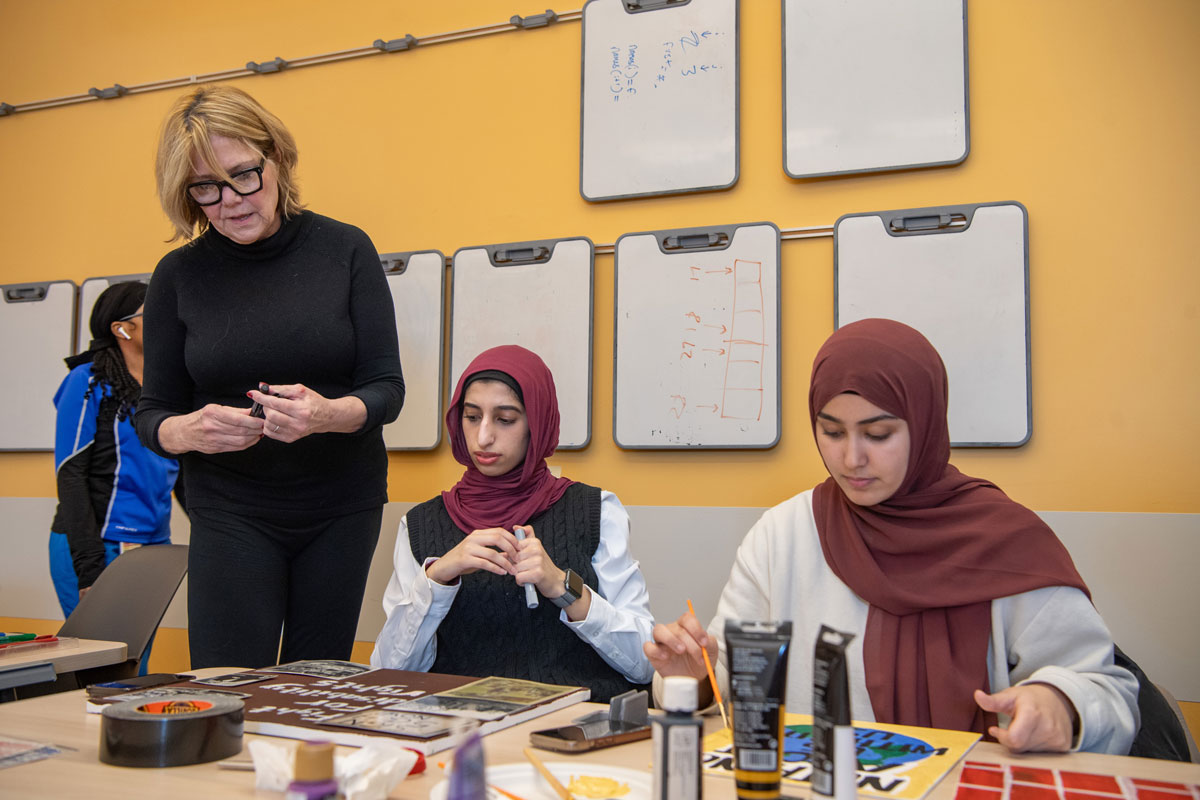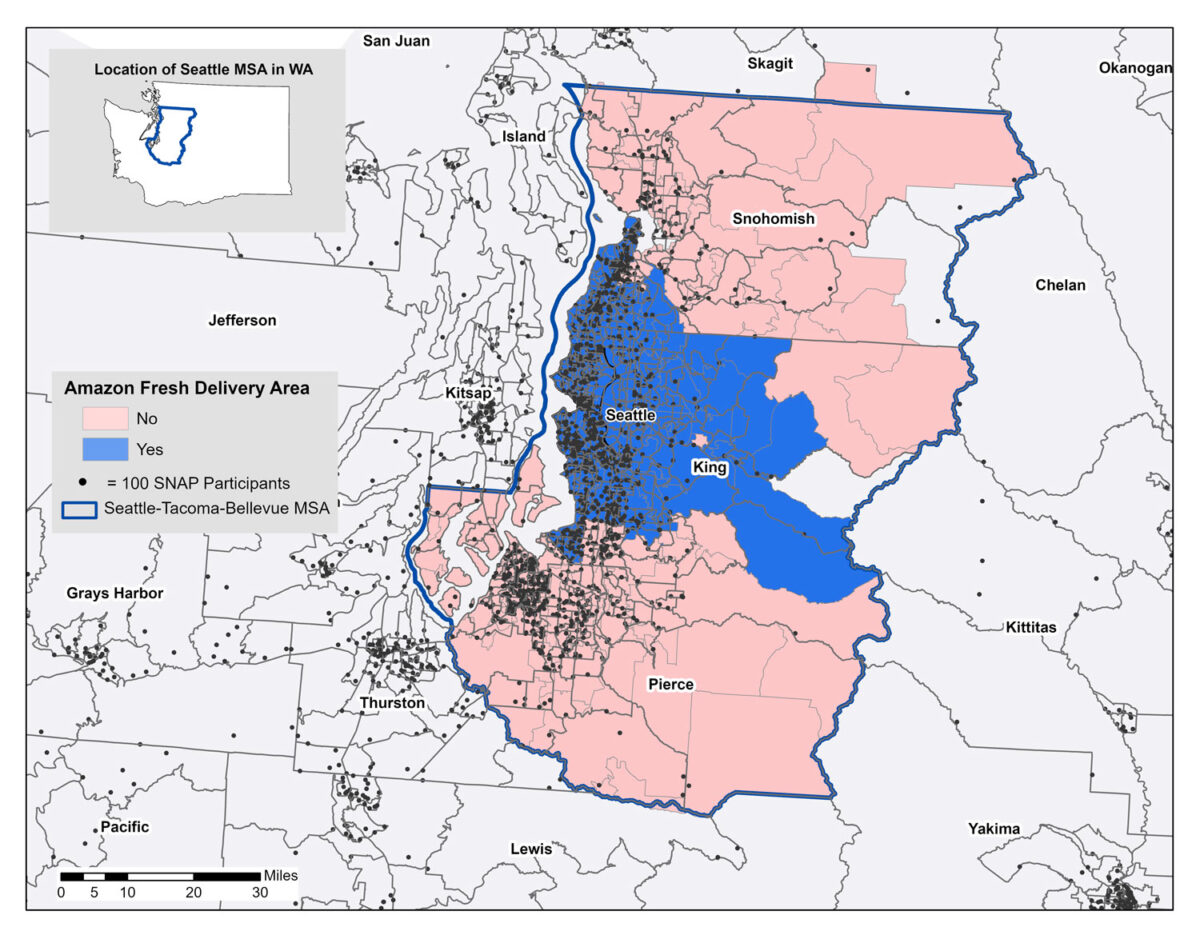How is work in Violence Prevention & Advocacy at UW Bothell?
Bethanie Lee and Erika Lee, confidential survivor advocates, answer a few questions from Maria Lamarca Anderson, director of communications.

Q: How do you try to innovate?
A: Our role is really about being student-centered, student-led and open to specific student needs. Our program is driven by being receptive and adaptable to the way student needs are unique from one student to another. We look to the feedback we receive, formally and informally, from students and faculty about how we can improve and what we can do to better serve and center their identities. We innovate our services through feedback and communication that center on the relational trust within our community.
Our mission focuses on creating safe space where students can find success on our campus, regardless of what may be happening in their lives that may be compromising their feelings of safety and security.
Q: What is the core of your work?
A: The core of our work revolves around meeting our campus community members where they are and working alongside them after incidents of sex- and gender-based violence or harassment. We strive to achieve as safe a space as possible for our community members, be it in the classroom, at work or at home, so they can fully engage with our campus.
The most important part of our work is to normalize the existence of interpersonal violence, particularly among college students. We aim to create a safe space for folks who are being harmed to share their stories. We want them to know we believe them, and we hope to support them in regaining their sense of autonomy.
Q: How do any or all of UW Bothell’s three strategic priorities fit into your work?
A: Our work is closely aligned with UW Bothell’s priority to focus on enhancing community and campus engagement. When folks experience violence and harm, engaging with community can oftentimes feel daunting and inaccessible. Our role as advocates focuses on responding to incidents of harm and finding ways to support our community to re-engage with campus after these incidents. Karina Tamayo, our preventionist, works on bringing tangible culture change to our campus through education and outreach so we can prevent the harm from happening in the first place.
Q: What are you working on today?
A: As advocates, much of our work involves providing one-to-one direct advocacy services in response to harm. We are also focusing on increasing awareness of our services across campus. We do this through tabling and outreach efforts for our students, providing training to staff and faculty about bystander intervention and response to disclosures, and facilitating a support group for survivors.
Karina is currently running a podcast, We Need to Talk, which aims to start conversations about personal experiences, cultivating healthy relationships and bringing awareness to gender-based violence issues. She is also working with our HEROs (Health Educators Reaching Out) to table around campus to bring awareness about how to identify healthy relationships.
Q: How does who you are show up in your work?
A: Bethanie: I’m a queer, non-binary person of color, and I was a first-generation college student. My understanding of myself — my identities and the intersections of my own marginalization and privilege — connects with the ways I do this work. It also shows up in how I hold space and share space with students, staff and faculty who come to our team looking for support. I am always striving to center QTBIPOC (queer, trans, Black, Indigenous and people of color) voices, to see the places our identities and experiences overlap and differ, and to walk alongside folks while they become re-empowered in their autonomy.
Erika: I am gender-queer, I am a person of color, and I am a survivor. Holding shared identities with our students allows me to have a deeper understanding of our students that stems from our shared lived experiences. I hope that I’m able to provide some foundational trust in this work, to let students know that they are not alone in this.
Q: Where is your favorite spot on campus, and why?
A: Bethanie: I like to go to the North Creek Wetlands and have my lunch out by the water. It’s nice and peaceful, and getting time away from my screens is a good change of pace in the middle of my day.
Erika: I enjoy the Promenade outside of the library. It makes for great people-watching and sits right between UW Bothell and Cascadia College. Seeing students, faculty and staff walking through between classes reminds me of the campus community that I’m a part of and why I’m doing this work.
Q: What is your favorite thing about working at UW Bothell?
A: Bethanie: My favorite thing about being a part of this campus is getting to see the ways students will get themselves engaged on campus!
Erika: I attended the University of Washington as an undergrad, and I returned as a current MSW/MPH student. I’m grateful to have a chance to not only give back to the community that has helped me grow as a person but also to represent this community through my own identity.


